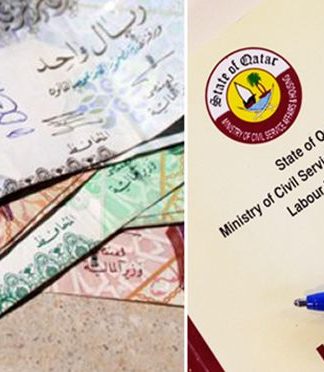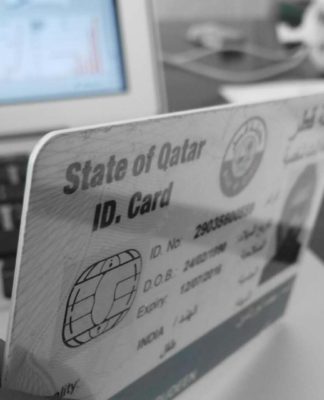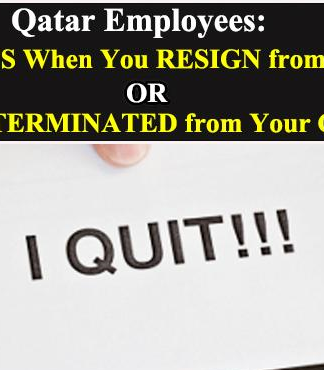
Mopaw Foundation/Flickr
Photo for illustrative purposes only.
A few months ago, 25-year-old Filipina expat Rose left Qatar for good. She had spent two years working for a home cleaning agency here.
In this opinion piece, she offers a glimpse into her world of exhausting days, low pay and no chance of career advancement – and her decision to remain optimistic nonetheless.
There really is no place like home.
I’m overjoyed to be back in the Philippines with my family again. I missed them so much during my time in Qatar, as I hadn’t been away from them before.
I’d agreed to take a job overseas because I was promised a good salary along with food and board, but the promises made to me were not honored.
The contract I signed in the Philippines stated that I would be paid QR1,465 per month, but when we got to Qatar, a new contract said I’d be paid QR1,000.
That brought my hourly salary down to around QR5 an hour.
New contract
I was the victim of a switched contract. All of the women I lived with were cheated in this way, too. We were all very upset, as you can imagine.
Initially, we wanted to report our employer to the authorities, but we were worried we would lose our jobs.
We needed money for our families, so we felt powerless. We were stuck.

Business2community.com
Photo for illustrative purposes only.
Instead of dwelling on this though, I I got through the past two years by making a conscious choice to remain positive.
I always prayed before I went to sleep every day, and I tried to enjoy the experience as much as I could.
I just focused on the money I was earning, even though it wasn’t what I had been promised.
Still, while I got accustomed to the life, I spent the last two years counting the days until I could leave Qatar.
Living conditions
Our accommodation was also not what I expected. It very overcrowded – I shared a four-bedroom, three-floor villa with more than 40 other women.
We were all cleaners working for the same agency. There were 12 girls in my room sleeping in bunk beds; mine was one of the top ones.

Spidey2012 / Flickr
Photo for illustrative purposes only
It was sometimes tricky living in such a confined space.
Some of the women would argue with each other, and they’d often come to me to talk about it, because I’m a good listener.
I just kept my distance mostly. I was the youngest, so I didn’t get involved. When I was upset, I just called my mama and told her about it instead.
Meager rations
One of the things that bothered me most was the lack of food.
In the contract I signed in the Philippines, it said that we would have an allowance for food every month, but in reality they gave us very meager rations.
We only got two sacks of rice, one sack of sugar, two or three cartons of canned milk and four to five big gallons of oil every three months. Sometimes, we had to stretch these ingredients for even longer.
Our lunches were always oily – things like hot dogs, fried chicken and noodles.
We complained about the lack of food, but the company did nothing.

Joshua Rappeneker/Flickr
Photo for illustrative purposes only.
And our kitchen was always dirty. Even though we tried to keep it clean, there were just too many of us.
And it wasn’t big enough for all of us. You often had to wait your turn to cook. We only had three gas ovens for all 45 of us, with a total of eight gas burners for us to cook our food on.
A curfew
Because the food we were given wasn’t enough, we tried to buy extra food on Fridays, our only day off. But that was only if we were allowed to leave our housing.
For most of the two years I was in Qatar, our manager only allowed us to go out twice a month. This upset me, but not as much as some of the other women I lived with, who were very angry about it.
We were miles away from shops and things, and there was nowhere we could walk to.

Brian Candy/Flickr
Lulu in Barwa City
Just before I left Qatar, however, they started letting us go out every week, if we could convince a driver to take us.
We’d usually ask to go to a mall, like Safari.
There was a firm curfew, though. If we were home later than 6pm on Fridays you would get a warning letter, and if you were late on three consecutive Fridays, they would fine you, taking money out of your salary.
Long working day
It was already a low salary, given how many hours we worked.
My alarm would go off at 3:30am every working day. Well, except Saturday, when the traffic was better, so I would set it for 4:30am.
We cleaned for about 48 hours a week, excluding travel time. We’d leave the villa at 5:30am, and depending on traffic, get to our first job at about 6:30am.
Sometimes, we’d be dropped off for work very early by our driver or picked up late, and have to wait outside in the heat for hours, which was awful.

Ashley/Flickr
Photo for illustrative purposes only.
I cleaned the houses of two clients each day. They were an international mix, and they were all really nice to me.
They would often give me snacks and drinks like fruit, biscuits and bottled juice. Some would also give me tips, but it didn’t matter to me if they didn’t – I was just glad that they were good to me.
It made me so happy when they said “thank you” after they’d asked me to do things, even if they weren’t hard for me to. They also didn’t let me work outside in the summer, and I was grateful for that.
Several of them wanted to sponsor me so I could live with them and work for them full-time, but my agency would not give me permission to do that.
Exhaustion
I would usually finish my last job at 6:30pm every day, and get home at around 7:30pm.
After I got home in the evening I’d do my laundry and cook food for the next day before going to bed at about 10pm, completely exhausted.

Nicole Abalde/Flickr
Photo for illustrative purposes only
The first month I was there, I was so tired when I got back that I didn’t even have the energy to eat my dinner, but I got used to it as time went on.
But like everyone though, I got sick sometimes. Being tired probably didn’t help matters.
One time when I was ill, the doctor gave me a sick note saying I should take two days off work.
However, the supervisor at the company only let me take one day off, and sent me out the next day even though I still felt sick.
Advice to others
It might surprise you to know that I don’t regret taking the job in Qatar.
It was worth it for the experience – for getting future jobs, and for meeting the people I met, from all over the world.
If any women reading this are considering taking an agency maid job in Qatar though, I have two pieces of advice:
Firstly, make sure that you thoroughly research how your chosen agency’s management treats its workers.
And secondly, before you take the job, ask yourself if you would be happy doing it. Two years is a long time to be working somewhere you don’t want to be.


























